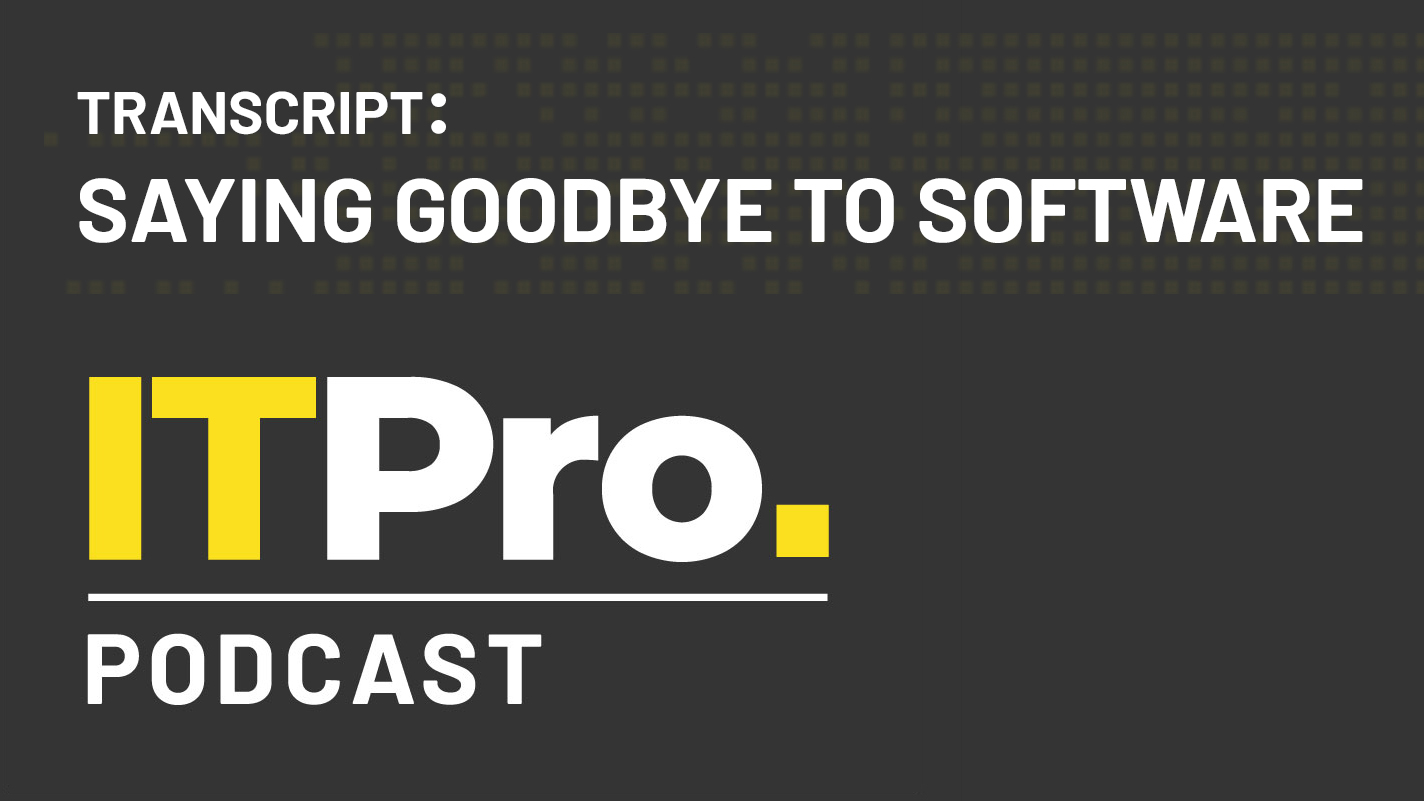
This automatically-generated transcript is taken from the IT Pro Podcast episode ‘Saying goodbye to software’. To listen to the full episode, click here. We apologise for any errors.
Adam Shepherd
Hi, I'm Adam Shepherd.
Jane McCallion
And I'm Jane McCallion.
Adam
And you're listening to the IT Pro Podcast, where this week, we have some sad news to share.
Jane
It's not really that sad.
Adam
Quite sad.
Jane
Well, it is a sad-happy news. The news being that this is my last podcast episode, not forever, but for the next year; I am about to go on maternity leave. So you will have to put up with Adam basically all the time without me to intervene.
Sign up today and you will receive a free copy of our Future Focus 2025 report - the leading guidance on AI, cybersecurity and other IT challenges as per 700+ senior executives
Adam
That's right. For the next year, I'll be joined by a rotating cast of guest co hosts, many of whom regular listeners will have already heard on previous episodes. But don't worry, we'll still be bringing you all the same great content. And considering that we're saying goodbye to Jane, this week's topic is oddly fitting, we're looking at why people struggle to say goodbye to software.
Jane
We're joined today by staff writer Bobby Hellard, who will be discussing why people often find it so hard to give up their favourite applications and services, examining the impact this can have on business strategies, and how IT organisations can help their staff embrace change and move on with newer iterations. Bobby, thank you for joining us.
Bobby Hellard
Thank you for having me. Good luck on your maternity leave.
Adam
Yes, congratulations.
Jane
Probably gonna need it. But you know, sleep is for the weak, eating food at normal times is for the weak. I've done it once before, I'm got at least a small level of experience. So we'll see whether or not that actually has any impact on how how things turn out. But you know...
Adam
Well, let's dig in then to the topic at hand. Why do we have such trouble letting go of software? Now I'm sure we're all familiar with the feeling of having to get to grips with a new application, or even an update of an existing application that just instinctively inspires kind of almost hatred.
Jane
Yeah, for me, it's, it's not so much the applications themselves, although like a dramatic change, I normally find pretty aggravating. At least at the beginning, sometimes forever. But I think it's more sort of the actual update process itself. It really just annoys me, I don't have time for this kind of thing. I need, I need my updates to happen more quickly than they do. And end in something that I find useful, that still has all my favourite features, and no nonsense. And that is rarely, like really rarely, what happens, let's face it.
Adam
But you must have had that where an operating system or even just one of your favourite applications, has an update. And suddenly it looks completely different. The UI is completely different. The layout has changed. Everything is all over the place. And you just think, no. Why? Why have you done this?
Jane
The biggest sinners on this are Twitter and Facebook. Now I know that they're not business applications, but it's kind of like, we've got rid of this really useful thing that everybody used. And now we've got, what is it they've got now like, live voice chats. The last thing I want is people's Twitter voices in my brain. Twitter is bad enough to like, just speak your brains and be terrible. I don't want to hear people's like actual voices saying these terrible things.
Bobby
Is it worth mentioning the short lived fleets that didn't last that long?
Adam
I was just about to say, yeah, that is, I think, possibly the most botched feature I've ever seen implemented by a social media platform.
Jane
Yeah, we bought Vine. And then we tried to use it, and then we accidentally killed it. Soz.
Adam
Well, that wasn't even Vine.
Jane
Oh no, it was the self-destructing, It was like, Snapchat, wasn't it?
Adam
That was the stories. Yeah, it was like Twitter's ill-fated attempt at a kind of stories-type structure that just almost immediately failed.
Jane
I think we are making like very much our own point here. But like, Facebook has done it in the change in the timeline. So it's no longer chronological. I just find that kind of infuriating. So you're kind of commenting on stuff that came in like days ago, or you know, maybe seeing, yeah, seeing stuff that would have been relevant on Tuesday, but now it's Thursday. And you know, much kind of less so. And it's probably one of the reasons that I barely use Facebook anymore, actually, because it's just become less useful.
Adam
And I think that's a really telling example, because most people hate that that feature. And there is a, there is a reason why that exists, which we may get into later on. But most people really, really want the chronological timeline back on both Twitter and Facebook. If you polled social media users on the feature that they would most like to see implemented, I would bet you folding money that the majority would ask for a chronological timeline back.0
Jane
Which you can switch to on Twitter, to be fair.
Adam
Temporarily.
Jane
I've told it so many times, I want it chronological, that it stops trying to switch back to home.
Adam
Really? Interesting.
Jane
Yeah, just be persistent with Twitter. Facebook, it's just like, yeah.
Bobby
But isn't, isn't the reason for those changes, because they want to keep you on it for longer so they're, they're putting up the content that you think, that they think you're going to look at the most?
Adam
Exactly, it's all about kind of growth hacking and engagement hacking, they want to, they want to be able to kind of surface the stuff that's gonna keep you on platform for the longest. And you know, it also has the nice side effect of, you know, having brands and business pages, you can then pay money to boost how many of your followers actually see your posts. Whereas with a chronological timeline, it's just, you know, however many happened to come across it. But the salient point is, we all still use Facebook and Twitter, maybe not as much as we would do otherwise. But we're still on it. You know, we still haven't let go of that. And we still want that old experience back.
Bobby
I suppose it's worth looking at where this topic actually came from. And it's because we had a suggestion that we might not be able to use Slack anymore. And we all kind of had a little meltdown in the Slack channel.
Jane
No, please don't leave us!
Bobby
I believe the suggestion was it was going to be Google Chat is where we'd move it to.
Adam
That's right.
Bobby
I did go into Google Chat. And I thought I'd test it out. And I'd test out Keumars with some football chat, and it just didn't quite work as well. It just looked like an afterthought to my email, if that makes sense. And it just wasn't as easy to use, I felt like this is not gonna be any good.
Adam
Absolutely.
Bobby
But it turns out, we might still be using it anyway, Slack. Which, I suppose is what people just do, if their software is coming to an end, or they're going to change, they find a way to keep it.
Jane
Oh, shadow IT, shadow IT.
Adam
And that's the key point: users will find a way to, to do what they want out of software and get what they want out of software.
Jane
Much like dinosaurs and life, in fact.
Adam
Exactly. And we'll talk about that more shortly. Because there's some really interesting examples of that. But I think it's worth examining why we get so attached to software because, you know, on paper, software, particularly in a business context, software should just be a tool to do a job. You know, as long as something does the job, it shouldn't really matter what the layout is, or the UI is; we shouldn't really get as attached to software as we do. And yet people form these deep and lasting attachments to software that that really shouldn't be logical.
Jane
Yeah. Do you know what the classic example of this is? Is the Start menu.
Adam
Yes.
Jane
And like kind of how, how attached people are to that particular feature of Windows which, I don't even know how long it's been there, I think it's since like Windows 95.
Adam
Possibly longer than that.
Jane
Well yeah, I was gonna guess like Windows, like kind of, 95 is nearly 30 years ago now, so which is like, tragic.
Adam
God.
Jane
How to make the youngling feel old.
Adam
Yeah, there's a memento mori.
Jane
But that was one of the big reasons that Windows 8 uptake was just like...
Adam
People hated Windows 8.
Jane
I really liked it. I really liked it.
Adam
Yes, Jane, but you are on record as a Windows Mobile liker.
Jane
Yes.
Adam
And have thus been categorically proven to have zero taste.
Jane
I'm like a hipster, but of tech.
Adam
I bet you had a Zune and everything.
Jane
I don't even know what that means. But I think that kind of, you know, for me, the reason that I didn't hate Windows 8 and actually quite liked it and engaged with it as a touchscreen type thing and thought it was kind of cool is because I am typically a Mac user. And so the interface that I am very used to is different, you know, the Finder menu is kind of, and the Apple menu, is kind of a start bar, similar type thing, but it's not the same. And so for me, I'm like, Oh, well, this, this is fine, because it's like my phone. And it was the whole one Windows thing that was supposed to be across all devices. But regular Windows users, just like torches and pitchforks outside Redmond.
Bobby
Well, I feel... I don't know your opinions on this. But the basic look of it, Windows 8, was just visually horrible. I feel like they'd gone and found every single colour combination that didn't work and added it to it. It was just gross. And it's just difficult to use. Yeah, I can understand why people did go from that, or to 8.1 either as well.
Adam
Yeah, and that's a very interesting point you raised there, Bobby about it being difficult to use, because logically, it shouldn't have been difficult to use, because aside from the start menu change, which wasn't even really that much of a change, everything was in its usual places. It worked more or less in the same way, it just looked a bit different. Why is it that we find layout changes and UI tweaks so hard to deal with as kind of users?
Bobby
I suppose it's muscle memory, mainly, because you're used to using things in a certain way. And then it it just, it's all changed, and you have to get used to something new. It's like switching from Android to iOS, they're just completely different ways of operating. It can be frustrating if, I had the iPhone this week, which I had from, I changed straight from an Android phone and getting used to doing that to delete apps took forever, because I was looking for the little icons at the bottom all the time. It's just, it's frustrating in its own way.
Jane
Yeah. And I wonder if like kind of those small changes as well, because a mobile interface nowadays is, they're relatively similar. Android and iOS, you've got little icons, you tap on them, you open an app, blah, blah, blah. But it's just those tiny changes in usability, like you say, rather than interface, as such, that I think are frustrating.
Adam
And I think, particularly when it's software that we use all the time, every day, those kind of little tweaks and changes can really slow down workflows, because it is it is about familiarity, fundamentally. So kind of when it's a an operating system, whether that's smartphone or desktop, we're using it all the time. So the little frustrations of having to hunt around for a few seconds to find, you know, a context menu or whatever, really start to mount up. And also I think there's a psychological element. You know, humans are very good at forming attachments with things. And I think that happens with software as much as it does with you know, like a robot vacuum cleaner, or a cat.
Jane
A robot vacuum cleaner or a cat?! How attached are you to your vacuum?
Adam
Oh, are you kidding? Like people, I wish I had a robot vacuum cleaner. But people absolutely form very deep relationships with their robot vacuum cleaners, you know, they give them names, like, dress them up in little outfits.
Jane
I mean, admittedly, if I had one, the probably the first thing that I do is try and convince my cat to go around on it.
Bobby
Like a little hoverboard.
Adam
Yeah, exactly.
Jane
And I'd need a trip to A&E. But it's also, the other thing humans are really good at is pattern recognition and spotting patterns in things. And if your pattern recognition is slightly disrupted, then your brain isn't gonna, isn't gonna like it. A very instinctive, deep part of your brain is going to get cross.
Bobby
There is another argument with Windows 7. And it could be that it was just a fantastic operating system. Because even when it came to Windows 10, there were still people using Windows 7, as we constantly reported. I think it was like about 30% of users were still on Windows 7 by the end of 2019. And that was months away before it was going to be killed off.
Adam
Absolutely. And so we've, we've mentioned a couple already, but there are, there are some, some examples of software and operating systems and applications that users will just cling to fanatically, Windows is terrible/great for this, depending on how you want to look at it. Windows XP was massively popular. Vista, again, was hugely, hugely beloved. 7, as you mentioned, Bobby, very, very, very popular, very hard to convince people to migrate off of. And even, yeah, even as you say, the jump to Windows 10 was quite difficult for Microsoft to get going, to get rolling.
Jane
When I think as like a Mac user, because kind of moving from from macOS 9 to macOS 10 was structurally, and to an extent kind of visually, very, very... it was a huge jump. And the main controversy was the fact that macOS 10 is based on Unix, whereas 9 and previous was not. The interface wasn't a problem, though, because the kind of key parts of it remained. The way that the folders look, they look like little drop files, the positioning of the taskbar equivalent along the top, the fact that, you know, you went into the little Apple menu to do stuff, all those kinds of things remained the same. So I guess the critical stuff was never removed. So even when I kind of update from macOS 10.9 to 10.10 - I'm not sure if we're even there yet, or if that's a long time in the past - I just said, it looks snazzier. But fundamentally, it's the same. And the usability doesn't change at all. So we have an update, I might be like, Well, this looks a bit weird. But there's my little kind of pop up thing down the bottom, there's my taskbar at the top, and it has everything where I'm expecting to find it. Whereas I think Microsoft has repeatedly been like, what if we got this thing that everyone loves, and just like burn it to the ground, and tried again? And then repeatedly has to raise it from the ashes, or at least you know, the Start bar, or having things arranged on the left, not the centre.
Adam
And there's another company that is also quite bad for that in its own special way. And that is Google, which doesn't so much continually reinvent its products in the same way Microsoft does. But what it does do is frequently burn popular products to the ground, just take them out behind the woodshed, and [pop]. so Google Reader is, I think, possibly the most beloved piece of defunct software. That was hugely, hugely popular and hugely, hugely beloved, particularly among kind of tech nerds and Internet people. And it was basically just an RSS feed reader. And nothing particularly fancy and couldn't have been that onerous to support from Google's perspective, but nope, they just, they killed it one day, several years ago, and never bought back anything kind of remotely like it.
Bobby
Well, I suppose the easiest answer to that is it didn't make a profit. And unless it makes a profit, it's not really going to help that company or be useful to that company. And I guess they choose profit over user experience.
Jane
Or profit over popularity, I guess. And it kind of makes business sense. Even if it's a bit brutal to be like...
Adam
A bit ruthless.
Bobby
Although now, Google want to get rid of that reputation, don't they, of being killed by Google. We recently reported that.
Adam
The first step in that would be to stop killing things.
Jane
But it's something that Microsoft used to be accused of, and indeed guilty of, although it would be not so much, you know, kind of creating its own products, and then eating its own children as acquiring stuff, and then killing it off, basically, not even necessarily taking the features and absorbing them. Whereas Google is like we've invented this cool thing. Oh, you liked it? I have, I have some bad news.
Adam
So let's talk then about the impact that this phenomenon can have, this unwillingness that we all have to move on from our favourite pieces of software, particularly in a business context. You know, we've already discussed some of the challenges that companies like Microsoft had, getting people to upgrade to the latest versions of Windows, for example. And that applies to businesses as entities, as much as it does to individual consumers and users. So what kind of impacts can this this phenomenon have?
Bobby
Well, I suppose it can make it difficult for businesses if their staff are not upgrading; security issues, because they don't get the patches and so on. But I always keep thinking about the government and their use of WhatsApp. And they keep saying that they shouldn't use it, because it's self-deleting; they're deleting, deletable messages and whatnot. But it just kind of sounds like it's convenient. And that's the way they want to use it. And there's no other alternative that's as easy. So it's kind of that difficulty between giving your staff stuff that they use and want to use, that's convenient, and keeping your business secure, or keeping people within the guidelines.
Jane
Yeah, and then you've got, you've kind of slightly killed my cynical side on that.
Bobby
Sorry.
Jane
Which is kind of like with the use of WhatsApp. Oh, no, I accidentally dropped my phone into this industrial shredder. Whoops! But you're, you are also right, that kind of WhatsApp is more convenient for sending short messages than any email provider is, any business messaging system, including our beloved Slack. None of that is as convenient as WhatsApp - other messaging apps are available. And I think that you're probably right that, at least initially, there's an element of of that rather than hiding things away. But what I thought you were gonna say on public sector and the government, is actually how bad they are at upgrading to newer systems, like, notoriously bad. And sometimes there's a reason for it. Within the NHS, quite often it's to do with compatibility, you know, you can't go out and buy yourself a new MRI machine every time there's a new Windows comes out. Other parts of the public sector, it's probably time pressures.
Adam
Well, it's budgets and time.
Jane
Yeah, I was gonna say, time pressures and resourcing.
Bobby
It's good though, because some people that not switching to the latest software can rob them, like you just said, of the latest technology. And so like, I suppose a good example is Huawei. We quite like Huawei hardware, their cameras on their phones, and so forth. But without Google, we're not interested because we can't get our favourite apps and so forth. So we're losing out on these fantastic smartphones. Just because we can't watch Netflix or, or WhatsApp or whatever on their systems, because they haven't got Google. So there's that kind of weird trade off.
Adam
Yeah, and also, the kind of, the time that it takes to do a full, a full migration from one, one version of Windows to another. That was, in fact, one of the main reasons behind Windows 10 and the way it was designed, was making it easier for subsequent upgrades to take place. Because Windows, the Windows 7 to Windows 10 migration took a huge, huge amount of time, I think, there's still some public sector organisations that haven't finished that migration process yet. And a large part of why that is, is because it was just an absolute nightmare to do. And public sector organisations, you know, they don't have the time or the budget really to take away from their business as usual operations to actually get that done.
Jane
Yeah, and yeah, even very large enterprises. If you try to do a big bang migration, you're gonna have a problem. So chunking, say, departments or sub departments to do it. But I think also IT departments within organisations, they have other stuff to do. So it's kind of natural, in some ways that you're going to leave it until it's more or less the crunch point, you have to do this thing unless you want to leave yourself open to ransomware, and this, that and the other. I do think the Windows 10 idea was, was quite good. And, you know, the kind of incremental updates. It's a shame that the, in some ways that the last version of Windows turned out to not be the last version.
Adam
Quote-unquote...
Jane
Yeah, although Windows 11 is perhaps Windows 10 with a fancy dress on.
Adam
Yes, absolutely. But it's speaking of that kind of idea of a big bang migration, and kind of having to, having to do that when you get to the kind of crunch point, whether that's, you know, end of life for the particular version that you're on or, you know, another pressing concern. That causes huge, huge headaches for IT departments. So, should businesses with that in mind, make an effort to upgrade their software, as soon as it is realistically possible?
Bobby
I guess so. I mean, I suppose it depends on the system, doesn't it? I mean, because even the biggest companies have migration problems like, I think we're a couple of weeks after Facebook had a massive outage because of a migration issue or a configuration problem?
Adam
It was a configuration issue, yeah.
Bobby
Took them down for six, six hours, and that's one of the biggest companies in the world. So it just, I assume some people will fear that they're going to botch their system. But the likelihood is, eventually some software will be botched. And it's unavoidable. I guess, not always. But there will be occasions when you've, you've done this.
Adam
But is it, is it better than with that in mind to get it out of the way, sooner rather than later, when it's not absolutely critical that the migration happens, and you've got a bit of time? You know, if if something doesn't work, you've got a bit of time to roll the process back, have another look at it, you know, replan how you're going to manage it.
Jane
I think, you know, as I'm not an IT professional, as many people will have noticed, if this is coming as a shock to anyone, sorry. However, I do spend a fair amount of time speaking to IT professionals. And I think that the sensible thing to do, from what I've picked up and kind of from my point of view, is to start testing as early as possible. So you start that testing phase as soon as you possibly can to identify what are the bugs, what are the things are not going to work and to also then be able to get to a stage where you know, like, right, okay, this is now safe for deployment across the organisation. Because you never want to be an early adopter. Talking to two hardware nerds, I'm possibly speaking to a brick wall. But my personal feeling is you don't want to be an early adopter, you want to be the person who, after everybody else has checked that the water is safe, then you jump in. And especially if you're a business, but yeah, I think that testing phase and doing getting into that testing phase as soon as possible, is probably the most practical and smoothest way to, to do an upgrade, especially if it's something big, like operating systems.
Adam
Yeah, I think pilot programmes for this are absolutely critical. Making sure that you have a group within your organisation that has tested the software, has kind of played around with it for a bit, you've had a chance to identify any kind of compatibility issues or anything like that. That's, that's really critical. But having said that, even once you have done the rollout and started deploying these new tools, and these new pieces of software throughout your organisation, that doesn't necessarily mean you're out of the woods, because you still have the problem of users. As we mentioned at the top of the show, we as individuals, all have a tendency to stubbornly cling to our favourite tools and operating systems and all the rest of it. And that can mean that when businesses, for example, decide to migrate to a new collaboration platform, or a new suite of Office tools, or, you know, whatever it might be, you get these pockets within the organisation that go, No, I am just going to keep using the same thing that I've been using for the last three years. And it's served me perfectly well, and I'm just going to install it and use it kind of under my own steam, which can be a problem for many shadow IT related reasons that we've covered in previous episodes. How can organisations get round that, because obviously, you don't necessarily want that as a business.
Jane
I think there's a couple of ways. If it is something that has a subscription attached to it - for example, if you're moving from Microsoft 365 to G Suite, or vice versa - you can just pull the plug. Just, like, you can just stop it from working. And if there's anything that's kind of subscription based, you do that and there will be a lot of grumbling. But if you want to, like get on with your colleagues and talk to them and stuff, and indeed like clients or whoever, then you've got to move over to the new email system, document system, whatever. Because if you don't have a licence, then the plug is pulled. On the other hand for stuff that you don't have to pay for, that has a free tier of some description, say you had been using Dropbox, and now you've moved over to G Suite which has Google Drive. There are still free tiers of Dropbox. And it would be easy enough to kind of just start using that. And that side of it is much harder.
Bobby
The thing is that there is something that businesses can do, and it's probably not going to make them look that good, but they can just put their foot down, as I believe Google did with Zoom, initially, it banned all their staff from using it. So they can just be dictatorships and just go No. And then that's problem solved.
Adam
The thing with that, though, is that kind of stuff is very hard to track within a business. Because even if you banned people from using it, and indeed, even if you pull the plug on a corporate subscription, with something, you know, any SaaS-based tool, the whole beauty of them is you can just get up and running with a credit card, you know, you can take out a subscription just for you and, you and your team, if you really want to keep using it. And that's very, very hard to track on an enterprise level.
Jane
I dunno, I mean, if you really wanted to come down hard, and you have this, you care this much, and you have this much time to put in the effort, you could at a network level - which kind of only works if you're in the office - but at a network level, you can block certain domains. So Zoom, you could block, you can have user privileges that are very, very low, so they can't download any software onto their computer, without IT's say-so, IT has to remote in or go through being an admin and put anything on the computer. There are ways and means to do it. Working from home makes it slightly more more difficult. But like I say, it kind of depends how much how much effort you want to put in, really.
Adam
Personally, I think a better solution is just to, firstly, to give your staff comprehensive education and training about the new software or application, because chances are, it will do everything that your staff need it to do and everything that the previous version could do. It's just that staff aren't familiar with it. So there's this instinctive reaction of No, it's it's different and therefore wrong. So you know, education and training, get them familiar with it, show them where everything is and how everything works. And chances are, they will adapt, and they will, they will learn to love the new platform, whatever it is. But as part of that, listen to your staff, you know, if it genuinely isn't meeting their needs, and isn't doing things that whatever they were using before is doing, take that into consideration, you know, maybe you can supplement that with additional tools, or maybe it just, maybe it just isn't working. And it's worth going back to the the previous thing that you were using, you know, you have to be open to those possibilities.
Bobby
I suppose there will be some people in organise, in an organisation that are just not tech savvy, and they'll fear having to go through another learning curve with a whole new system. And they'll just be like, I don't want to do this. But yeah.
Jane
Yeah, and I think kind of making sure that when you pull the plug on one thing that you are providing an alternative, like a viable alternative for whatever the thing is, you need to give your staff something else to work with and be like, Okay, well, we're not using X anymore, but we're using Y and it fulfils the same kind of function, even if it is not the same piece of software, here's how we use it and possibly even have a gradual migration, kind of like, you've got a month to get used to this new software before we turn off the other one. This is what change management is for, as well.
Adam
Yeah. Absolutely.
Jane
And kind of looking into change management, rather than being like, well, we've taken all your favourite stuff. It's in the bin now, here's some stuff you don't like. Or, just here's some stuff that you are unfamiliar with, which humans do not like. Yeah, some kind of change management programme. You don't need to bring in a consultant, but like, or not necessarily. But, you know, just do it a humane way, I guess is what I'm saying.
Adam
Yeah, exactly. Never, never underestimate the value of kind of hand-holding your users through changes and updates and making sure that they're as familiar as possible with something rather than just dropping a new thing on them and going there you go, figure that out. Bye. Because especially in business, you know, users resent disruptions to their workflow, and resent having to take the time away from what they should be doing to concentrate on learning an entirely new thing.
Jane
Yeah, absolutely.
Adam
I think that's where the main grinding of gears comes from.
Bobby
I suppose something that's really good about software, particularly Slack, is that there's very little learning is needed with it. It's it's quite easy and quite straightforward to use. So if people can just bring in that kind of stuff, it's just easier for everybody. But of course not every operating system is so easy.
Adam
Yeah, there's certainly some software that is more intuitive than others. Looking at you macOS...
Jane
What?! No! Fight me. Fight me. I may not be in the state currently to have a fight, but fight me. macOS for life. Well, I'm afraid that's all from us this week, and indeed, in my case, this year.
Adam
I hope you'll all join us in wishing Jane well during her time off, and we look forward to welcoming her back to the show next year.
Jane
And thanks again to Bobby for joining us, you can expect to hear more from him over the coming 12 months.
Adam
As for me, I'll be back next week bringing you more expert analysis from the world of IT and you can follow us on all the usual social platforms for more. Until then, though, goodbye.
Jane
Bye.
ITPro is a global business technology website providing the latest news, analysis, and business insight for IT decision-makers. Whether it's cyber security, cloud computing, IT infrastructure, or business strategy, we aim to equip leaders with the data they need to make informed IT investments.
For regular updates delivered to your inbox and social feeds, be sure to sign up to our daily newsletter and follow on us LinkedIn and Twitter.
-
 Hacker offering US engineering firm data online after alleged breach
Hacker offering US engineering firm data online after alleged breachNews Data relating to Tampa Electric Company, Duke Energy Florida, and American Electric Power was allegedly stolen
-
 Threat intel could be your secret weapon in cybersecurity sales
Threat intel could be your secret weapon in cybersecurity salesIndustry Insights Threat intelligence transforms cybersecurity sales from reactive product pitching to strategic advisory.
-
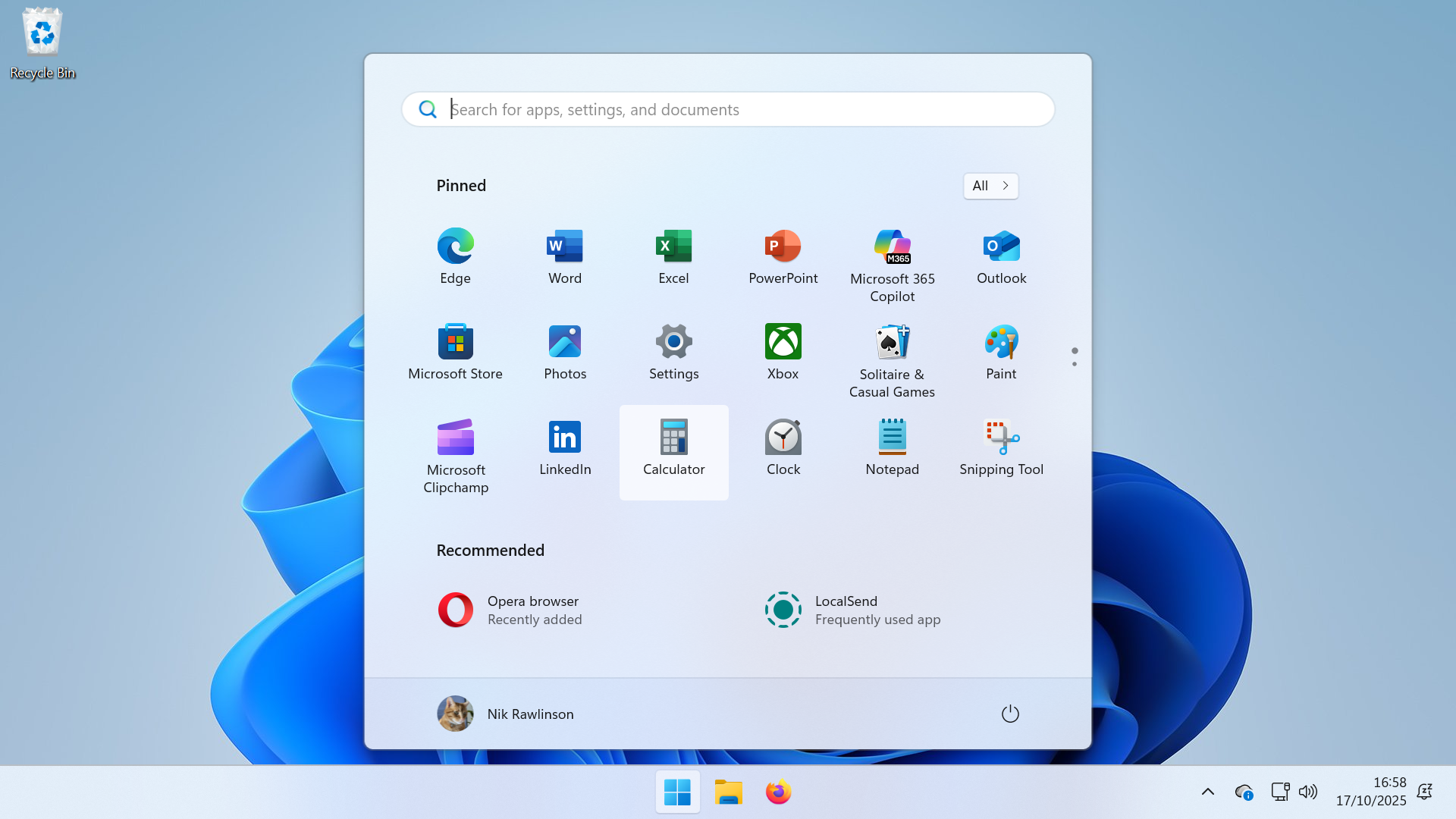 Windows 10 end of life has passed – here's your business guide to Windows 11
Windows 10 end of life has passed – here's your business guide to Windows 11In-depth As Windows 10's mainstream support ends, it's time for businesses who have yet to upgrade to take a second look at Windows 11
-
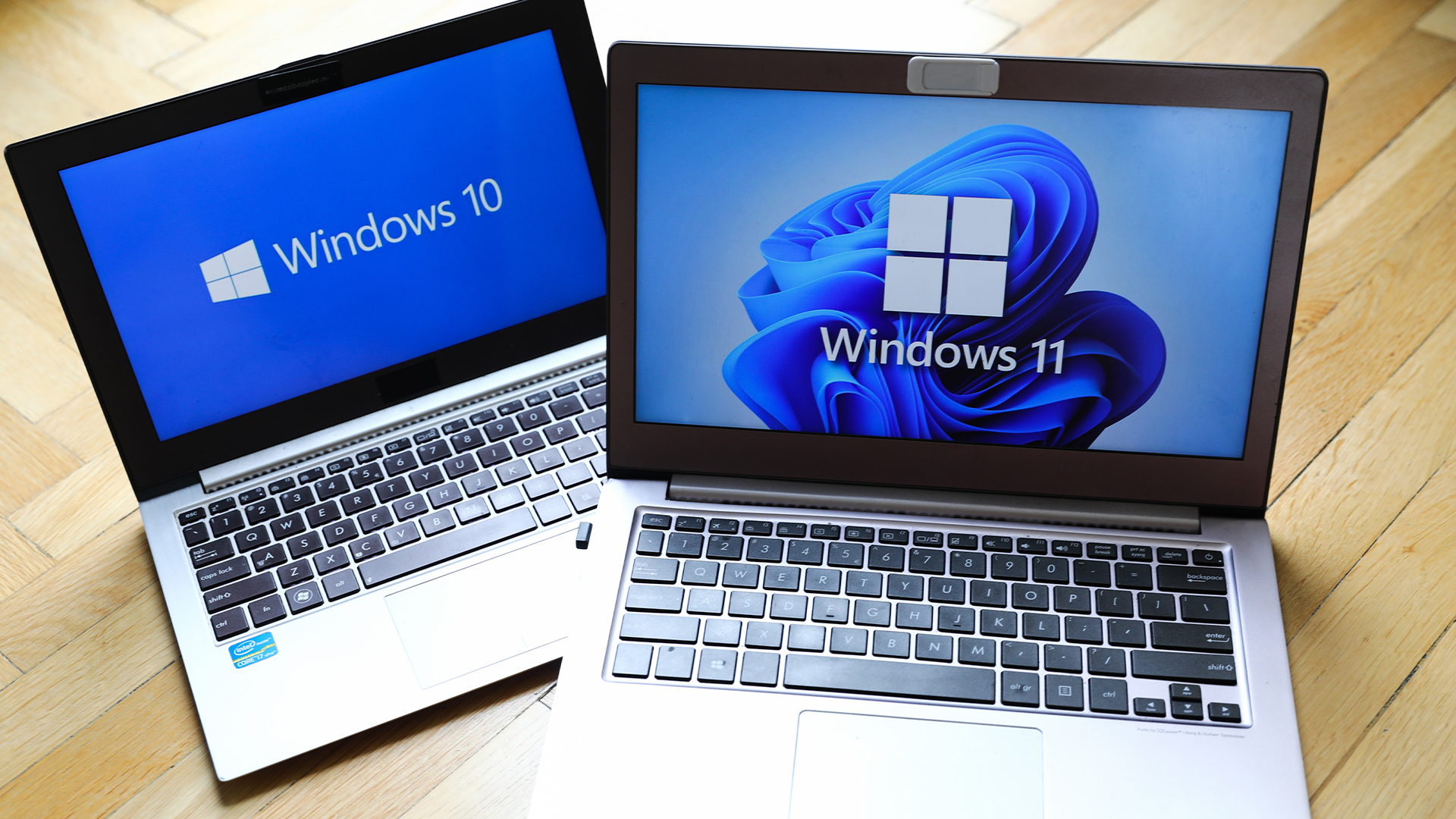 Windows 10 end of life could create a major e-waste problem
Windows 10 end of life could create a major e-waste problemNews The study marks the latest Windows 10 end of life e-waste warning
-
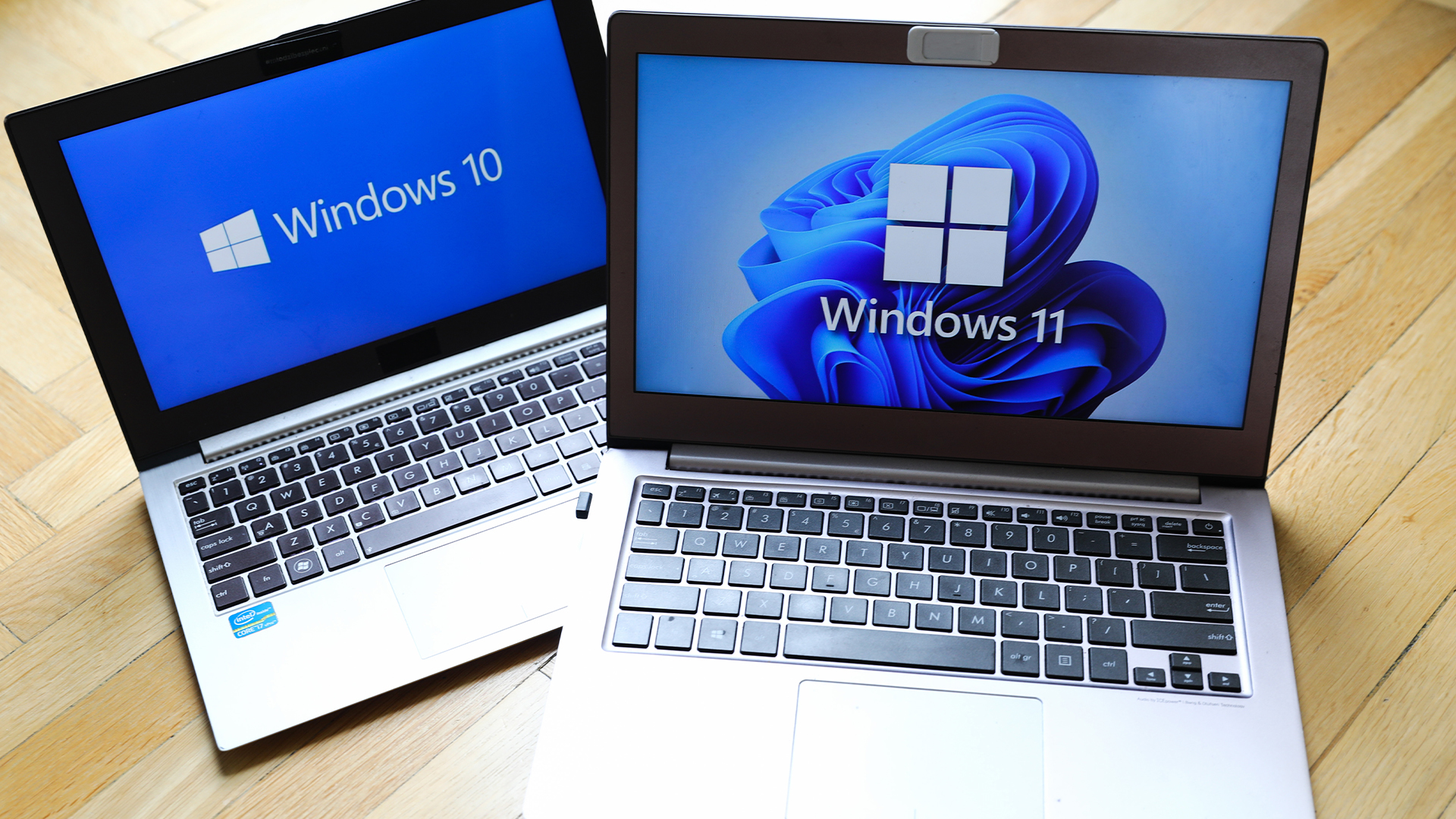 Windows 10 extended support costs could top $7 billion
Windows 10 extended support costs could top $7 billionNews Enterprises sticking with Windows 10 after the October deadline face huge costs
-
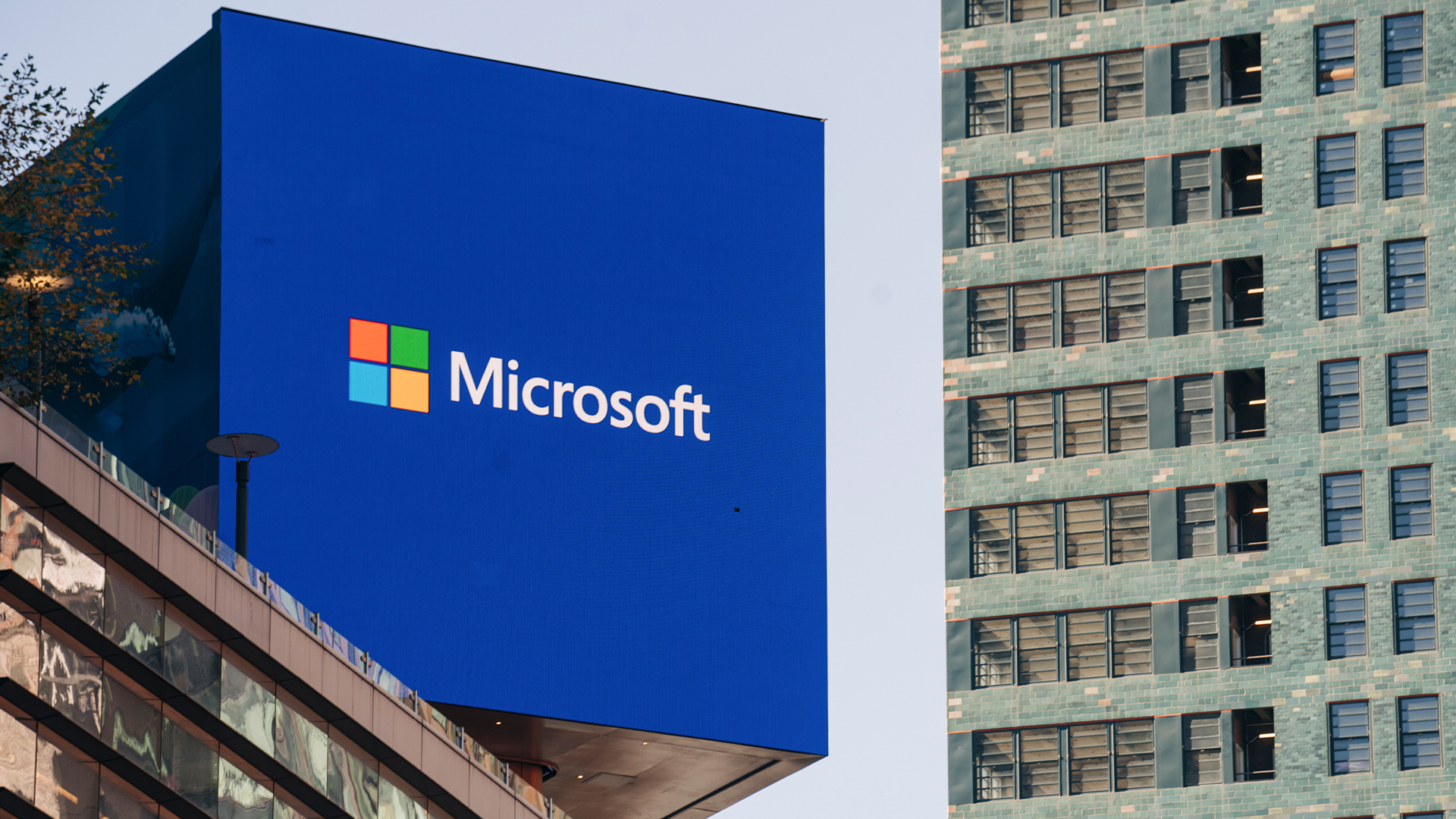 A Windows 11 update bug is breaking SSDs – here’s what you can do to prevent it
A Windows 11 update bug is breaking SSDs – here’s what you can do to prevent itNews Users first began reporting the Windows 11 update bug last week
-
 The Windows 11 migration conundrum: What role can the channel play?
The Windows 11 migration conundrum: What role can the channel play?Industry Insights Resellers are instrumental to making the right choice about the next steps...
-
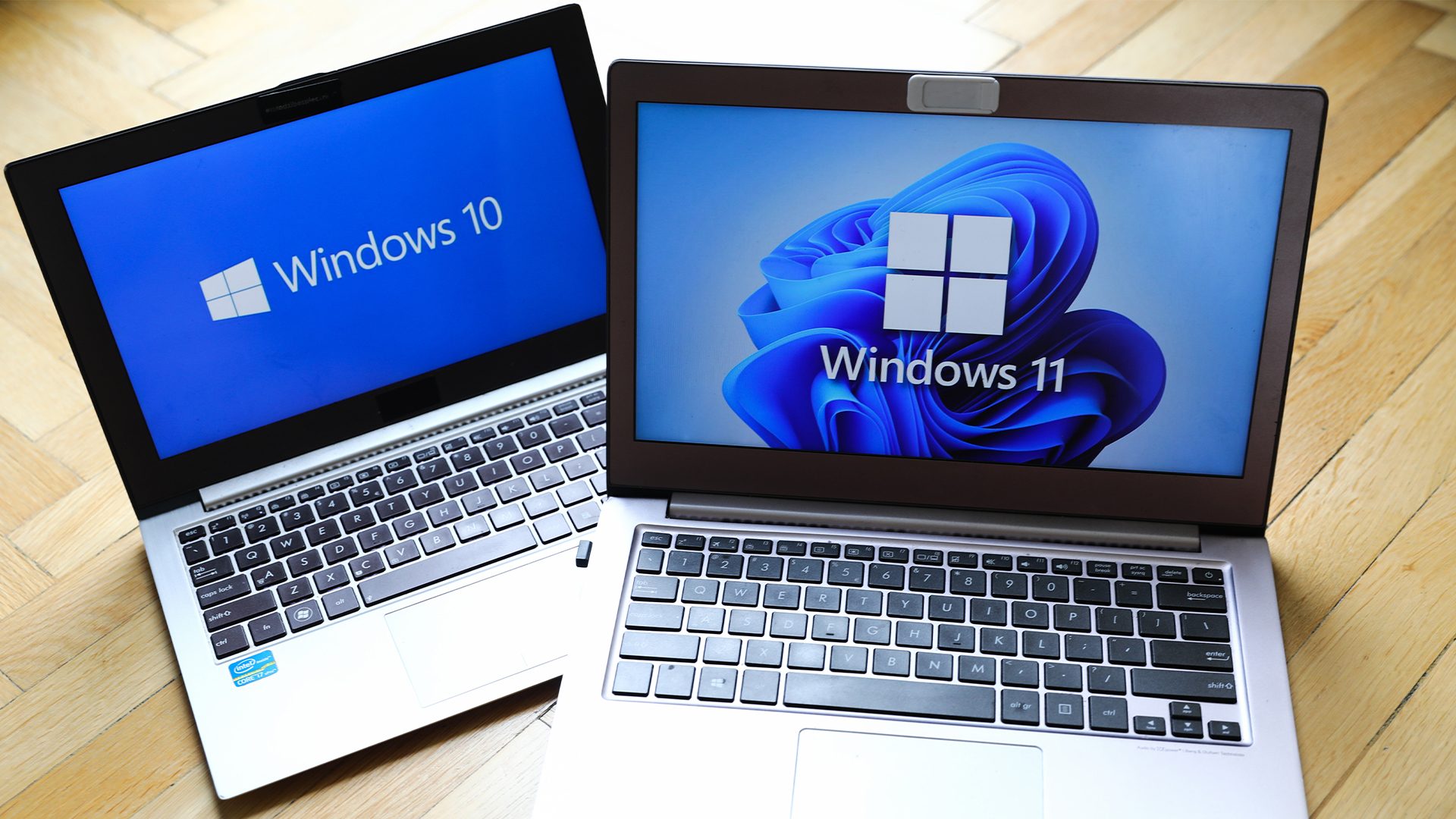 The NCSC just urged enterprises to ditch Windows 10 – here’s what you need to know
The NCSC just urged enterprises to ditch Windows 10 – here’s what you need to knowNews The UK cyber agency says those that haven’t migrated to Windows 11 should do so immediately
-
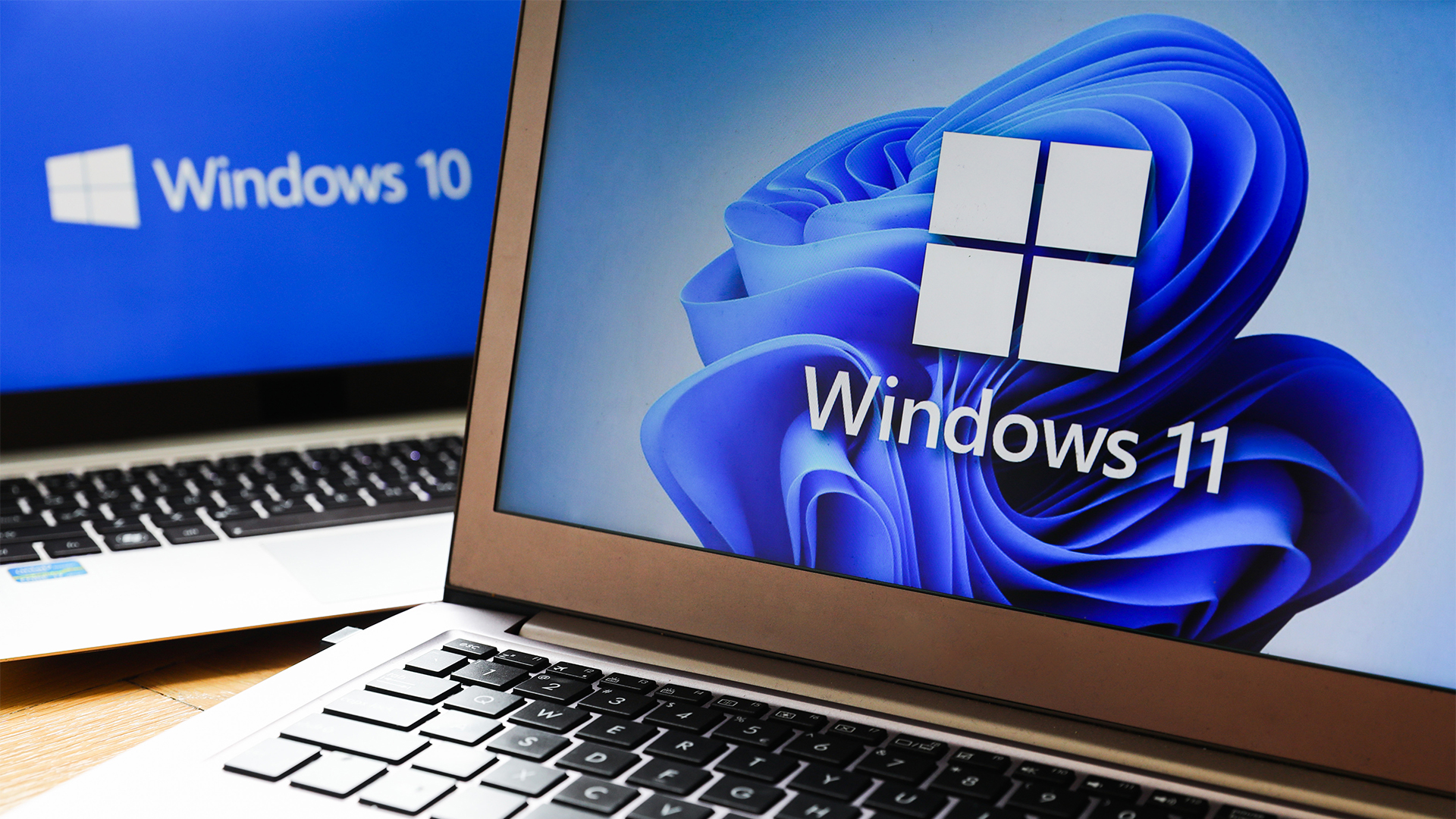 Windows 11 finally overtakes Windows 10 in popularity – but what’s driving this surge?
Windows 11 finally overtakes Windows 10 in popularity – but what’s driving this surge?News It’s been a long time coming, but Windows 11 is finally Microsoft’s most popular operating system
-
 Dragging your feet on Windows 11 migration? Rising infostealer threats might change that
Dragging your feet on Windows 11 migration? Rising infostealer threats might change thatNews With the clock ticking down to the Windows 10 end of life deadline in October, organizations are dragging their feet on Windows 11 migration – and leaving their devices vulnerable as a result.

